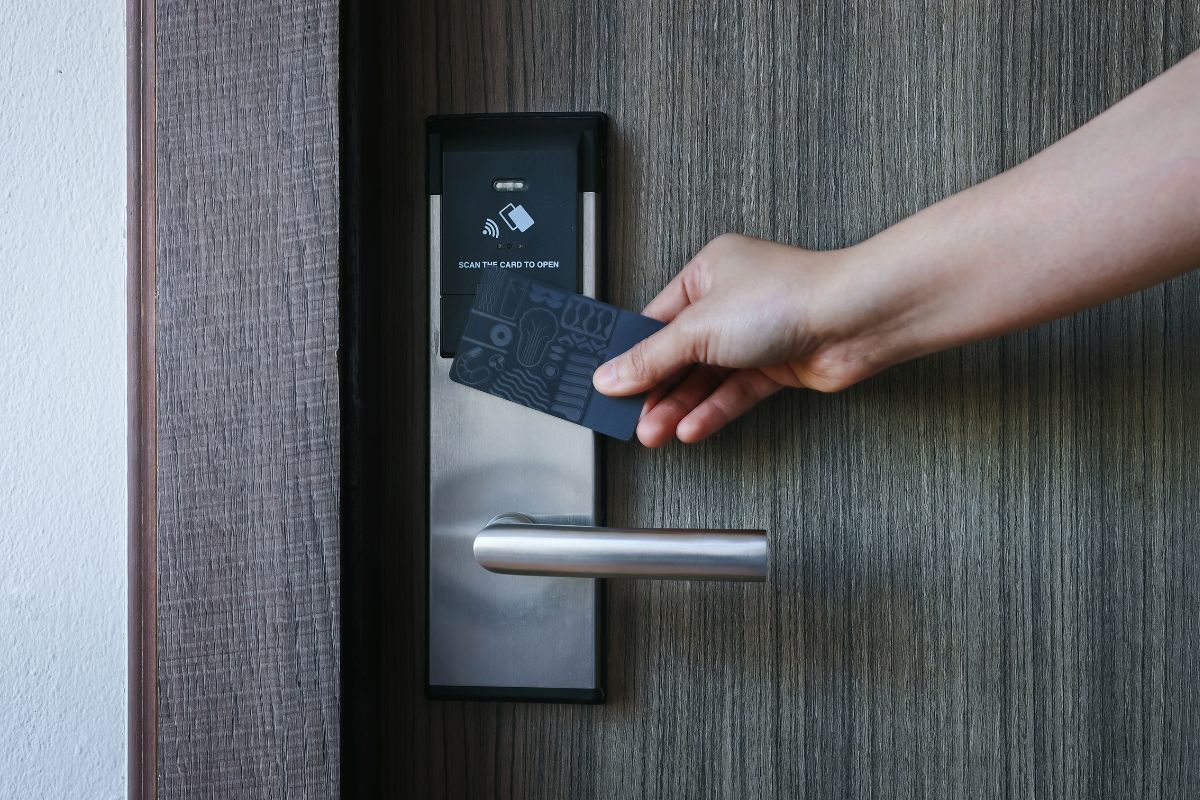Smart Door Locks: Are They Really Secure in Today’s Connected World?

In an era where convenience and connectivity reign supreme, smart door locks have emerged as a popular alternative to traditional mechanical locks. These digital devices promise keyless entry, remote access, and integration with smart home ecosystems. But as their popularity grows, so do concerns about their security. Are smart locks truly safe, or are they just another vulnerable node in the expanding Internet of Things (IoT)?
Let’s dive into the world of smart door locks and explore their strengths, weaknesses, and what homeowners should consider before trusting them with their front door.
What Are Smart Door Locks?
Smart door locks are electronic locking systems that allow users to lock and unlock doors using smartphones, keypads, biometrics, or voice commands. Many models connect via Bluetooth, Wi-Fi, or Z-Wave, and can be integrated with platforms like Amazon Alexa, Google Home, or Apple HomeKit.
Features often include:
- Remote locking/unlocking
- Temporary access codes for guests
- Activity logs and notifications
- Integration with security cameras and alarms
These features offer unmatched convenience, especially for busy households, rental properties, and tech-savvy users.
The Security Promise
Manufacturers tout smart locks as more secure than traditional locks. With encrypted communication protocols, biometric authentication, and real-time alerts, they claim to reduce the risk of unauthorized access. Some models even offer auto-locking features and tamper detection.
For example, the Yale Assure Lock 2 uses 256-bit AES encryption and local biometric processing, minimizing cloud vulnerabilities. These advancements suggest that smart locks can be highly secure—if implemented correctly.
The Vulnerabilities
Despite their promise, smart locks are not immune to threats. A comprehensive study published in Wireless Networks revealed that many smart lock systems suffer from poor app security and weak Bluetooth encryption. If the mobile app used to control the lock is not properly secured, attackers can exploit it to gain unauthorized access.
Here are some common vulnerabilities:
1. Bluetooth Exploits
Bluetooth-based locks can be susceptible to relay attacks, where hackers intercept and replay signals between the lock and the smartphone. If encryption is weak or absent, the lock can be tricked into unlocking.
2. Wi-Fi & Cloud Risks
Wi-Fi-enabled locks often rely on cloud servers for remote access. If these servers are compromised, attackers could gain control over multiple devices. Additionally, poor password hygiene or outdated firmware can expose users to hacking.
3. Physical Tampering
While smart locks often include tamper alerts, their physical components—like the deadbolt—can still be vulnerable to traditional lock-picking or bumping techniques. Some models retain mechanical keyholes, which can be exploited.
4. Software Bugs & Delayed Updates
Firmware vulnerabilities can be exploited if manufacturers don’t issue timely patches. Unlike smartphones, smart locks may not receive regular updates, leaving them exposed to known threats.
Real-World Testing
Security researchers have conducted penetration tests on popular smart lock models. In one study, five commercially available locks were tested for encryption strength, physical resistance, and authentication mechanisms. Results showed that while some locks performed well, others failed basic security checks.
For instance, one lock allowed unauthorized access via a brute-force attack on its PIN system. Another had a poorly secured mobile app that leaked user credentials. These findings underscore the importance of choosing reputable brands and staying informed about product vulnerabilities.
Best Practices for Smart Lock Security
If you’re considering a smart lock, here are some tips to maximize security:
- Choose a reputable brand with a strong track record in cybersecurity.
- Enable two-factor authentication on your smart home accounts.
- Regularly update firmware and mobile apps to patch vulnerabilities.
- Use strong, unique passwords for your lock and associated accounts.
- Disable remote access if you don’t need it.
- Avoid models with exposed mechanical keyholes, or ensure they’re pick-resistant.
- Monitor activity logs to detect unusual access patterns.
Balancing Convenience and Security
Smart locks offer undeniable convenience. Whether you’re letting in a guest while away or checking if the door is locked from bed, the benefits are clear. But convenience should never come at the cost of security.
The key is balance. Users must understand the risks and take proactive steps to mitigate them. Manufacturers, in turn, must prioritize security in design, testing, and support.
The Future of Smart Lock Security
As smart home adoption grows, so will the sophistication of smart lock technology. Future models may include:
- AI-powered threat detection
- Blockchain-based authentication
- Biometric-only access with local data storage
- Self-healing firmware that resists tampering
Regulatory bodies may also step in to establish minimum security standards for IoT devices, ensuring that manufacturers meet baseline protections.
Conclusion
Smart door locks represent a leap forward in home security and convenience—but they’re not foolproof. Like any connected device, they introduce new risks that must be carefully managed. With informed choices and vigilant practices, homeowners can enjoy the benefits of smart locks without compromising safety.
So, are smart locks really secure? The answer is: they can be—but only if you treat them as part of a broader security strategy, not a standalone solution.
FAQ
1. Are smart locks more secure than traditional ones?
Yes, if properly installed and updated, but they can have digital vulnerabilities.
2. Can smart locks be hacked?
Yes, especially if encryption is weak or passwords are poor.
3. What if Wi-Fi or power goes out?
Most smart locks have backup options like Bluetooth or physical keys.
4. Do smart locks work with Alexa or Google Home?
Yes, many do—but unlocking may require extra security steps.
5. Are smart locks good for rentals or Airbnb?
Definitely. They allow remote access and easy guest management.

